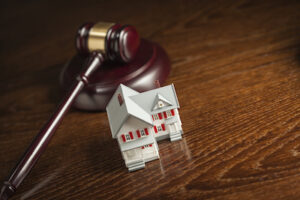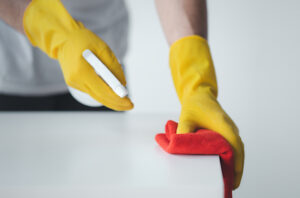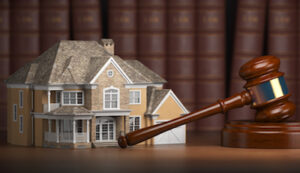How to Maintain an Unoccupied Home During Probate Guide
Probate is a legal process that occurs after someone dies. It involves the distribution of their assets and the settling of their debts. If you have been named the executor of a loved one’s estate, you will likely have to deal with an unoccupied home during probate, which can be a challenging, stressful, and complicated experience. As you must make sure to protect the property with unoccupied home insurance probate while it is vacant and ensure that the property remains secure, clean, and in good condition while you settle the estate. As it can have a significant impact on its future worth and the outcome of the probate procedure. In this guide, we will provide you with essential tips and tricks on how to maintain an unoccupied home during probate.

Tips for Maintaining an Unoccupied Home During Probate
Here are some essential considerations during probate on how you can preserve an unoccupied property.
1. Secure the Property
One of the most important things you can do when maintaining an unoccupied home during probate is to keep the property secure. This means ensuring that all doors and windows are locked and that any alarm systems are activated. You should also consider installing security cameras to monitor the property remotely. If the property is located in a high-crime area, you may want to hire a security company to patrol the area.
Also, if the property is in disrepair, it is critical to minimize any harm caused by exposure to the weather by securing the property from the weather. As an additional measure of protection against rain or other inclement weather, you may want to consider placing a plastic liner beneath any sections of required refurbishment or repairs that lay beneath certain windows or parts of structural supports.
2. Regularly Inspect Property
It is critical to have the property examined frequently during probate in order to preserve and keep it. This allows you to watch and repair construction flaws. Examinations of the internal and exterior structure are required.
Foundations, walls, and ceilings are examined for fissures and other signs of degradation during a structural evaluation. An auditor should also look over any electrical, sewage, or heating systems that may have become obsolete or out of order.
When it comes to the interior examination, this may include:
- Checking the floor for rot or wear and tear
- Testing ventilation systems
- Checking window sills and doors for broken seals
- Cleaning carpets, tiles, and flooring
- Updating paint when needed
When it comes to the external examination, this may include:
- Check for loose roofing, cracked paint on doors and windows, and missing guttering and fascia boards are all looked for.
- Garden surveyors should also look for overgrown vegetation and plants that promote moisture and mold growth.
- They should also inspect roads and walkways for stability.
- Items such as cracked stones, missing tiles, decaying fence posts, and so on should be replaced as soon as feasible when adjustments are needed.
3. Keep the Property Clean
It is essential to keep the unoccupied home clean during probate. Regular cleaning and examination of the property can help to maintain its state and structural stability over time. A neglected property can attract pests and cause damage to the structure over time. You should clean the property regularly, removing any trash, debris, or unwanted items. You should also make sure that the property is well-ventilated to prevent mold growth.
However, if you are too busy to clean the house yourself, you should consider employing cleaners. Also, the frequent cleaning and upkeep of the employees will reduce the possibility of theft or harm by intruders who are conscious that the property is empty.
It is critical to check a worker’s credentials, expertise, and referrals before hiring him or her. Make sure you study testimonials and understand the kinds of services they offer so that you can tailor their services to your needs. It is also suggested that you create a written agreement outlining the specific responsibilities needed for the work so that all parties’ standards are obvious.
If the tasks are possibly hazardous, consider employing an expert firm when selecting a cleaning/maintenance team for your empty property. Professional workers will ensure their safety because they have the knowledge required to accomplish duties without endangering themselves or others.

4. Cover Furniture and Floors With Protective Materials
Cover furnishings and surfaces with blankets, sheets, or other protective materials to prevent dust, sunlight, and weather changes from causing harm. If any furniture needs to be rearranged or moved out of the home, take additional precautions to avoid scratching the carpets and surfaces that the furniture was on.
Remove all absorbent materials, such as rugs or carpets, from restrooms and other areas where water may collect to prevent water damage. In areas such as cellars and yards, look for indications of water stagnation that may require drainage solutions such as pumps or planting soil changes.
5. Maintain the Property’s Exterior
Maintaining the exterior of an unoccupied home is just as important as keeping the interior clean. You should ensure that the lawn is mowed, the hedges are trimmed, and any dead branches are removed from trees. This will prevent the property from becoming an eyesore and will also deter potential burglars.
6. Check for Water Damage
Water damage can cause significant problems in an unoccupied home. It can lead to mold growth, which can be expensive to remediate. You should check the property regularly for signs of water damage, such as stains on the walls or ceiling, musty odors, or warped floorboards. If you notice any signs of water damage, you should contact a professional to assess the extent of the problem.
7. Turn Off the Water and Drain the Pipes
Turning off the water supply is an important step in keeping a vacant home safe. Turn off all taps and valves that send water into the house while you’re there. Check for any leakage or damage near these devices, as failure to do so can result in additional water damage and a decrease in property worth.
It is also critical to fully drain your pipelines by running all taps for several minutes until there is no more running water. This will prevent pipelines from bursting due to freezing temps outside. If you are unable to reach all areas of the house because of entry problems, hire a licensed plumber instead.

Conclusion
Maintaining an unoccupied home during probate can be a challenging experience, but it is essential to ensure that the property remains secure, clean, and in good condition. By following the tips and tricks outlined in this guide, you can minimize the risks of damage and reduce the costs of maintaining the property. Remember to keep the property well-maintained and seek legal advice if necessary to ensure that you are following all the necessary regulations.
If you are looking for more guidance on maintaining an unoccupied home during probate or need help settling an estate, consider reaching out to a trusted attorney or estate planning lawyer. With the right support, you can navigate the probate process with confidence and ease.
FAQs
1. What is probate?
Probate is a legal process that occurs after someone dies. It involves the distribution of their assets and the settling of their debts.
2. How long does probate take?
The length of probate varies depending on the complexity of the estate, the number of beneficiaries, and whether any legal disputes arise. Simple estates may be settled in a few months, while more complex ones can take years to resolve.
3. Who is responsible for maintaining an unoccupied home during probate?
The executor of the estate is responsible for maintaining an unoccupied home during probate. This includes keeping the property secure, clean, and in good condition.
4. Can I sell an unoccupied home during probate?
Yes, you can sell an unoccupied home during probate. However, you will need to follow the legal requirements and obtain permission from the court.
5. What happens if an unoccupied home is damaged during probate?
If an unoccupied home is damaged during probate, the executor may be held liable for the cost of repairs. This is why it is essential to keep the property well-maintained and secure during the probate process.
6. How can I reduce the costs of maintaining an unoccupied home during probate?
To reduce the costs of maintaining an unoccupied home during probate, you can consider renting the property or reducing your usage of utilities. You can also hire a property management company to help you maintain the property at a lower cost.
